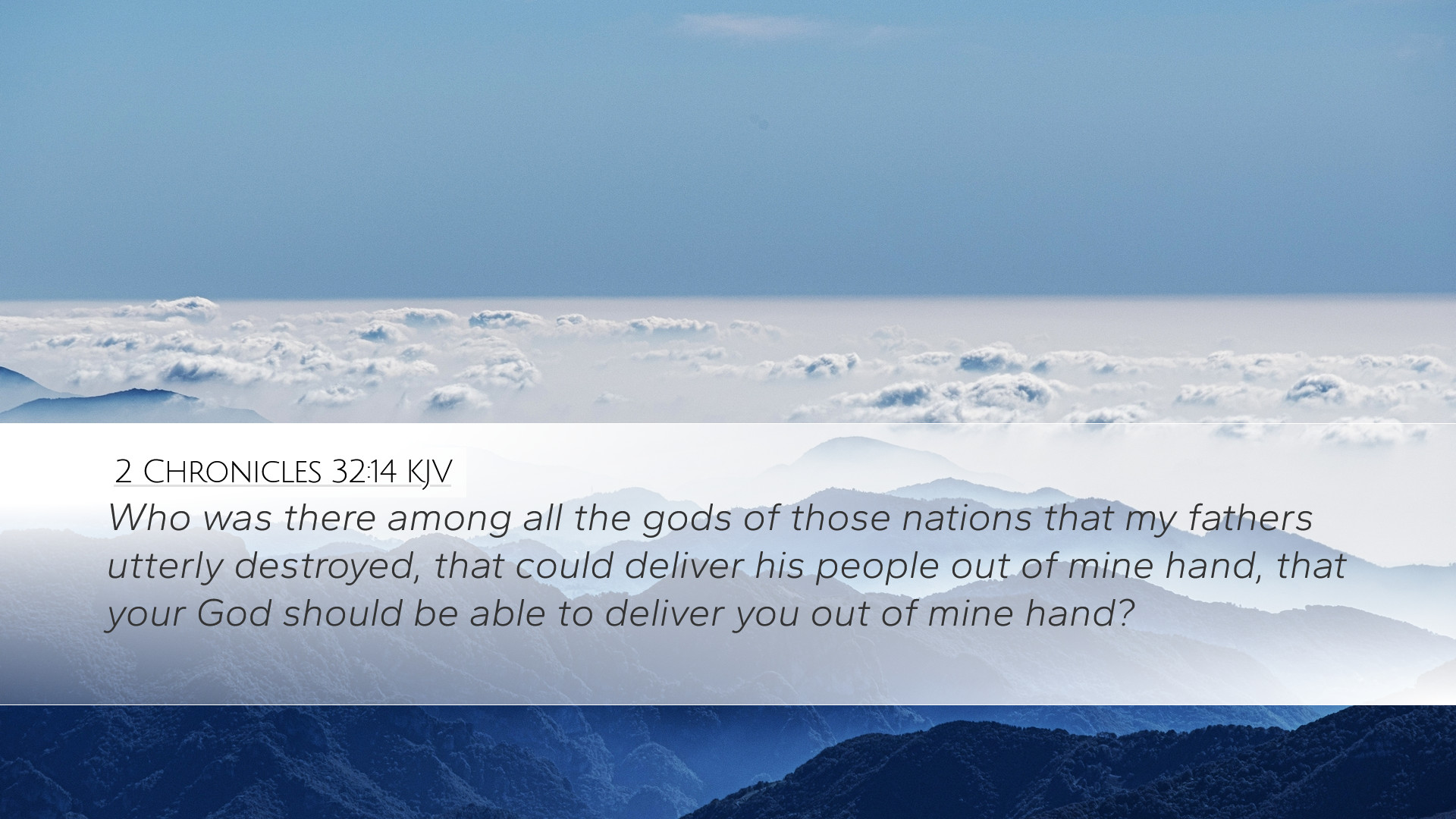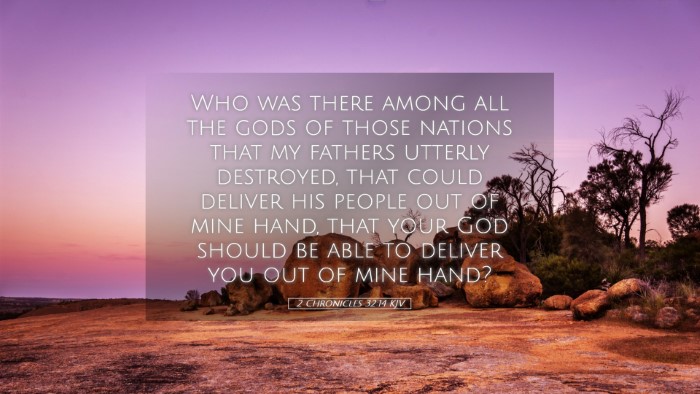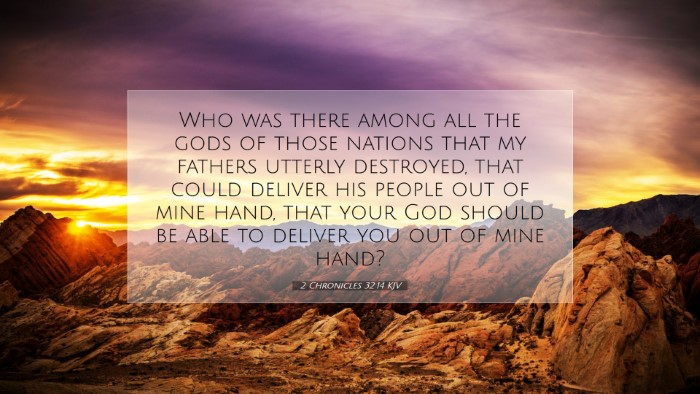Commentary on 2 Chronicles 32:14
Verse Analysis: 2 Chronicles 32:14 states, "Who was there among all the gods of those nations that my fathers utterly destroyed, that could deliver his people out of mine hand, that your God should be able to deliver you out of mine hand?" This verse recounts the words of Sennacherib, the king of Assyria, as he taunts the people of Judah, questioning God's ability to save them.
Contextual Background
This verse is situated within a narrative that underscores the conflict between King Hezekiah of Judah and the Assyrian king Sennacherib. It highlights a crucial moment in the biblical history of Judah when the nation faced existential threats from powerful adversaries. Understanding the historical context provides key insights into the spiritual and theological implications of the scripture.
Historical Context
Hezekiah's reign is marked by religious reforms and a return to the worship of Yahweh, contrasted sharply with the idolatrous practices of previous kings. The Assyrians had conquered vast territories, and their military power was regarded as virtually unstoppable. Sennacherib's invasion of Judah is a crucial event that tests the faith and resolve of Hezekiah and his people.
Theological Insights
The challenge posed by Sennacherib serves several theological purposes:
- Challenge to Faith: The question posed by Sennacherib reflects a common theme in the Bible where faith is tested. Can God deliver His people amidst overwhelming odds?
- Comparison of Gods: Sennacherib's taunt undermines the uniqueness of Yahweh, positioning Him alongside the false gods that had been destroyed. This comparative rhetoric aims to diminish the people's confidence in God's power.
- Divine Sovereignty: The assertion of human power versus divine authority is a recurring biblical motif. This moment serves to remind believers that no earthly power can truly separate them from the love of God, regardless of the circumstances.
Commentary from Public Domain Sources
Matthew Henry's Commentary
Matthew Henry highlights that Sennacherib's blasphemous challenge reflects a misguided understanding of divine authority. Henry notes that the gods of the nations were nothing compared to the living God. He emphasizes that Sennacherib, in his arrogance, overstepped his bounds by questioning the Lord's capabilities and sovereignty. He concludes that God's past deliverances serve as a testament to His power and faithfulness.
Albert Barnes' Notes
Albert Barnes elaborates on the rhetorical nature of Sennacherib's challenge. He points out the psychological tactics employed by Sennacherib to instill fear among the people of Judah. In his assessment, Barnes states that the failure of those nations’ gods to save them illustrates a critical lesson regarding the futility of idolatry. The very act of posing this question suggests Sennacherib's ignorance of the true God.
Adam Clarke's Commentary
Adam Clarke expands on the significance of Sennacherib's assertion by noting the prophetic fulfillment of the previous warnings of judgment if Israel turned away from God. Clarke emphasizes that the nations whom Sennacherib mentions existed as warnings against pride and overconfidence in human strength. He encourages believers to take heart in God’s promises, pointing out that those who trust in the Lord will find refuge and strength even in dire circumstances.
Practical Applications
The implications of 2 Chronicles 32:14 transcend its historical context, offering vital lessons for contemporary believers:
- Faith in Adversity: Believers are often faced with overwhelming challenges that test their faith. Like Judah under siege, maintaining faith in God’s deliverance is critical, even when circumstances appear dire.
- Understanding Idolatry: Modern forms of idolatry may not include statues but can take the form of careers, relationships, and comforts that distract from true devotion to God. This verse serves as a reminder to evaluate what competes for our allegiance.
- God's Deliverance: The assurance that God can deliver us from various trials is foundational to the faith. Reflecting on past experiences of divine intervention can strengthen faith for future challenges.
Conclusion
2 Chronicles 32:14 is a powerful exhortation that serves to challenge complacency and encourages deep reliance on God. The taunts of Sennacherib highlight the broader narrative of God’s unwavering sovereignty and faithfulness. By integrating insights from Matthew Henry, Albert Barnes, and Adam Clarke, we gain a richer understanding of the text that speaks across generations, encouraging faith amidst crises and the assurance of God's ultimate power to save.


